Before I even started planning the Storming Archives, I'd toyed around with the idea of including my experiences in a book of poetry, a memoir, short stories, a surreal screenplay and so on. At first - I wrote "Delwyn of the Realms" for a YA audience, but was thwarted by the so-called rules and regulations in terms of sex, drugs and profanity. I then outlined my story as an Adult Fantasy novel and went from there.
At the time, I assumed that the genre for my series was going to be Fantasy, but then I discovered all the sub-genres. (Even though I read a lot, I never took too much notice of the exact genres involved.) When I published Book 1 in early 2015, I called it a Fantasy, with tags such as paranormal, supernatural, mythological, psychological, dreams, astral projection and hallucination - to name a few.
I was searching for an exact niche - which took me nearly a year and a half to find - if the one I found is the right one. At some stages the Storming Archives was relegated to Slipstream, due to the elements of portal jumping, astral projection, alternate universes etc. Then I called the series a "Portal Fantasy" - as per one publisher's classification, noted in their blog.
At the time, I assumed that the genre for my series was going to be Fantasy, but then I discovered all the sub-genres. (Even though I read a lot, I never took too much notice of the exact genres involved.) When I published Book 1 in early 2015, I called it a Fantasy, with tags such as paranormal, supernatural, mythological, psychological, dreams, astral projection and hallucination - to name a few.
I was searching for an exact niche - which took me nearly a year and a half to find - if the one I found is the right one. At some stages the Storming Archives was relegated to Slipstream, due to the elements of portal jumping, astral projection, alternate universes etc. Then I called the series a "Portal Fantasy" - as per one publisher's classification, noted in their blog.
Throughout my year and a half of working, writing, marketing and promoting, I changed my sub-genre and marketing approach various times - according to how I saw my series and the target audience. This whole process has been slightly maddening, as I just wanted to tell my crazy stories - even though some of the elements are surreal, psychedelic and in the realm of thought, dreams and hallucinations.
Earlier this year, I started wondering if there was a niche or sub-genre more suited to my way of writing. I knew that surrealistic novels existed - especially favorites such as "On the Road" by Jack Kerouac, "Naked Lunch" by William Burroughs, and the works of Angela Carter, Kafka and so on. Like trying on all the wrong shoes in a shop and not being able to find either the right size, color or style, my search for a niche - if only for the purpose of being able to find my target audience - has been like a slippery dream itself.
Here is the list I compiled for the purpose of narrowing down my niche (including why and/or why not they fit the bill.):
From Wikipedia:
"Fantasy is a genre of fiction that uses magic or other supernatural elements as a main plot element, theme, or setting. Many works within the genre take place in imaginary worlds where magic and magical creatures are common. "
*Perfect - at least, as a general rule of thumb.
"Dark fantasy is a sub-genre of fantasy which can refer to literary, artistic, and cinematic works that incorporates darker and frightening themes of fantasy. It also often combines fantasy with elements of horror. The term can be used broadly to refer to fantastical works that have a dark, gloomy atmosphere or a sense of horror and dread."
*The Storming Archives definitely has these elements - so Dark fantasy is looking good.
"Slipstream is a kind of fantastic or non-realistic fiction that crosses conventional genre boundaries between science fiction, fantasy, and literary fiction.
The term slipstream was coined by cyberpunk author Bruce Sterling in an article originally published in SF Eye #5, in July 1989. He wrote: "...this is a kind of writing which simply makes you feel very strange; the way that living in the twentieth century makes you feel, if you are a person of a certain sensibility." Slipstream fiction has consequently been described as "the fiction of strangeness," which is as clear a definition as any of the others in wide use.
Slipstream falls between speculative fiction and mainstream fiction. While some slipstream novels employ elements of science fiction or fantasy, not all do. The common unifying factor of these pieces of literature is some degree of the surreal, the not-entirely-real, or the markedly anti-real."
*Great - feels right to me. My series reflects all these elements.
"Speculative fiction is a broad umbrella category of narrative fiction referring to any fiction story that includes elements, settings and characters whose features are created out of imagination and speculation rather than based on attested reality and everyday life.
That encompasses the genres of science fiction, fantasy, science fantasy, horror, alternative history, and magic realism. It typically strays strongly from reality and so may feature fictional types of beings like mythical creatures and supernatural entities, technologies that do not exist in real life like time machines and interstellar spaceships, or magical or otherwise scientifically inexplicable elements. "
*Again - Ditto!
Earlier this year, I started wondering if there was a niche or sub-genre more suited to my way of writing. I knew that surrealistic novels existed - especially favorites such as "On the Road" by Jack Kerouac, "Naked Lunch" by William Burroughs, and the works of Angela Carter, Kafka and so on. Like trying on all the wrong shoes in a shop and not being able to find either the right size, color or style, my search for a niche - if only for the purpose of being able to find my target audience - has been like a slippery dream itself.
Here is the list I compiled for the purpose of narrowing down my niche (including why and/or why not they fit the bill.):
From Wikipedia:
"Fantasy is a genre of fiction that uses magic or other supernatural elements as a main plot element, theme, or setting. Many works within the genre take place in imaginary worlds where magic and magical creatures are common. "
*Perfect - at least, as a general rule of thumb.
"Dark fantasy is a sub-genre of fantasy which can refer to literary, artistic, and cinematic works that incorporates darker and frightening themes of fantasy. It also often combines fantasy with elements of horror. The term can be used broadly to refer to fantastical works that have a dark, gloomy atmosphere or a sense of horror and dread."
*The Storming Archives definitely has these elements - so Dark fantasy is looking good.
"Slipstream is a kind of fantastic or non-realistic fiction that crosses conventional genre boundaries between science fiction, fantasy, and literary fiction.
The term slipstream was coined by cyberpunk author Bruce Sterling in an article originally published in SF Eye #5, in July 1989. He wrote: "...this is a kind of writing which simply makes you feel very strange; the way that living in the twentieth century makes you feel, if you are a person of a certain sensibility." Slipstream fiction has consequently been described as "the fiction of strangeness," which is as clear a definition as any of the others in wide use.
Slipstream falls between speculative fiction and mainstream fiction. While some slipstream novels employ elements of science fiction or fantasy, not all do. The common unifying factor of these pieces of literature is some degree of the surreal, the not-entirely-real, or the markedly anti-real."
*Great - feels right to me. My series reflects all these elements.
"Speculative fiction is a broad umbrella category of narrative fiction referring to any fiction story that includes elements, settings and characters whose features are created out of imagination and speculation rather than based on attested reality and everyday life.
That encompasses the genres of science fiction, fantasy, science fantasy, horror, alternative history, and magic realism. It typically strays strongly from reality and so may feature fictional types of beings like mythical creatures and supernatural entities, technologies that do not exist in real life like time machines and interstellar spaceships, or magical or otherwise scientifically inexplicable elements. "
*Again - Ditto!
"Urban fantasy is a sub-genre of fantasy defined by place; the fantastic narrative has an urban setting. Urban fantasy exists on one side of a spectrum, opposite high fantasy, which is set in an entirely fictitious world. Many urban fantasies are set in contemporary times and contain supernatural elements. However, the stories can take place in historical, modern, or futuristic periods, and the settings may include fictional elements. The prerequisite is that they must be primarily set in a city."
*Well - yes and no - sometimes.
"Weird fiction is a sub-genre of speculative fiction originating in the late 19th and early 20th century. It can be said to encompass the ghost story and other tales of the macabre. Weird fiction is distinguished from horror and fantasy in that it predates the niche marketing of genre fiction. Because genre or stylistic conventions had not been established, weird tales often blend the supernatural, mythical, and even scientific.
British authors who have embraced this style have often published their work in mainstream literary magazines even after American pulp magazines became popular. Popular weird fiction writers included Edgar Allan Poe, William Hope Hodgson, H. P. Lovecraft, Lord Dunsany, Arthur Machen, M. R. James, and Clark Ashton Smith.
Although "weird fiction" has been chiefly used as a historical description for works through the 1930s, the term has also been increasingly used since the 1980s, sometimes to describe slipstream fiction that blends horror, fantasy, and science fiction."
*Very much so
*Well - yes and no - sometimes.
"Weird fiction is a sub-genre of speculative fiction originating in the late 19th and early 20th century. It can be said to encompass the ghost story and other tales of the macabre. Weird fiction is distinguished from horror and fantasy in that it predates the niche marketing of genre fiction. Because genre or stylistic conventions had not been established, weird tales often blend the supernatural, mythical, and even scientific.
British authors who have embraced this style have often published their work in mainstream literary magazines even after American pulp magazines became popular. Popular weird fiction writers included Edgar Allan Poe, William Hope Hodgson, H. P. Lovecraft, Lord Dunsany, Arthur Machen, M. R. James, and Clark Ashton Smith.
Although "weird fiction" has been chiefly used as a historical description for works through the 1930s, the term has also been increasingly used since the 1980s, sometimes to describe slipstream fiction that blends horror, fantasy, and science fiction."
*Very much so
So?
It dawned on me that I was Cross-Genre - at best - which was annoying as I really wanted to find an actual niche. Being across the board makes me feel like "all things to all people" - which might sound like gold to someone who doesn't know much about marketing, but it doesn't help me find my audience. Being too vague is in the same neighborhood as too specialized - or at least - they come full circle on each other. Even though I've had good reviews, most people say the premise and the stories are unusual and "out there."
But there's the rub - as they say. I should be happy with the idea of my books being outside the genres and not dipping their tentacles in the Kool-aid! I've never liked being "run of the mill" and have always been what could be defined as a "fringe-dweller." What's so frustrating is the fact that being different is usually a hit or miss scenario. While a small handful might "get it" - the majority might not - therefore, minimal sales.
But there's the rub - as they say. I should be happy with the idea of my books being outside the genres and not dipping their tentacles in the Kool-aid! I've never liked being "run of the mill" and have always been what could be defined as a "fringe-dweller." What's so frustrating is the fact that being different is usually a hit or miss scenario. While a small handful might "get it" - the majority might not - therefore, minimal sales.
Varun - Guardian of the Dreamworld
However...
When I came across another author who writes in a similiar vein - I was delighted. He calls his writing "Psychedelic" - which struck a chord in me. Here's the skinny - in regards to Psychedelic Literature - according to Wikipedia. (Click on the picture to go to site.)
Some other types of "fantasy":
"Magical realism, magic realism, or marvelous realism is literature, painting, and film that, while encompassing a range of subtly different concepts, share in common an acceptance of magic in the rational world. It is also sometimes called fabulism, in reference to the conventions of fables, myths, and allegory. Of the four terms, Magical realism is the most commonly used and refers to literature in particular that portrays magical or unreal elements as a natural part in an otherwise realistic or mundane environment."
"Surrealism in literature can be defined as an artistic attempt to bridge together reality and the imagination. Surrealists seek to overcome the contradictions of the conscious and unconscious minds by creating unreal or bizarre stories full of juxtapositions.
Founded by André Breton (1896-1966), surrealism began as an artistic movement in Paris in the 1920s and lasted until the 1940s. Writer and philosopher Breton propelled this movement with his publication of The Manifesto of Surrealism, as a way of fighting against the way art was understood at the time." (According to Study.com)
Here's an interesting link to a site that explains how new genres and sub-genres in fantasy are born each year!
http://bestfantasybooks.com/fantasy-genre.php_
Founded by André Breton (1896-1966), surrealism began as an artistic movement in Paris in the 1920s and lasted until the 1940s. Writer and philosopher Breton propelled this movement with his publication of The Manifesto of Surrealism, as a way of fighting against the way art was understood at the time." (According to Study.com)
Here's an interesting link to a site that explains how new genres and sub-genres in fantasy are born each year!
http://bestfantasybooks.com/fantasy-genre.php_
Finally...
It's not just the story itself - but the way it is written - which helps determine the genre. Interesting prose is just as important as vision, bizarre characters and settings. I find that I tend to meander when I write - or rather - that I change the "language" to suit the different elements in the story.
In the Storming Archives, I write about a woman who deals with hypnopompic and hypnagogic hallucinations, astral projection and vivid dreams. She (Delwyn) finds a mirror portal to the world of dreams, where she discovers that she must face her Shadow in order to integrate and prepare for her destiny as a Portal Stormer.
The Portal Stormers come from all over the universe and Delwyn is the only human able to traverse all realms - in physical form. Once she travels throughout the realms to flex her Storming muscles and to test her mettle in the hellish realm of Nidar (the Underworld - where she faces her Last Sorrow) she initiates as a full-fledged Portal Stormer and meets her Oversoul.
A secret is imparted which shocks her to her core. Delwyn and the Portal Stormers learn about the Founders coming to wipe out the galaxy (known as Kendanerum), so they have to learn how to shape shift and travel to the forbidden realm of animal spirits, in order to convince the Ural to join forces with the rest of the realms and provide a united front.
When I was writing these stories - I allowed my imagination to take the wheel - incorporating many dream sequences, astral travel experiences and hallucinations into the story. This also resulted in a range of bizarre characters and explanations for the state of the human race - as well as our galaxy. Even though there are relationships in the story for Delwyn - I shied away from making it all about the romance.
I prefer to tell fascinating stories that stretch the imagination - without resorting to heavy reliance on triggers and trends in order to make a sale.
I recently happened across another term which I felt strangely attracted to. Here's the basics from Wikipedia:
"Bizarro fiction is a contemporary literary genre, which often uses elements of absurdism, satire, and the grotesque, along with pop-surrealism and genre fiction staples, in order to create subversive, weird, and entertaining works. The term was adopted in 2005 by the independent publishing companies Eraserhead Press, Raw Dog Screaming Press, and Afterbirth Books. Much of its community revolves around Eraserhead Press, which is based in Portland, Oregon, and has hosted the BizarroCon yearly since 2008.
The introduction to the first Bizarro Starter Kit describes Bizarro as "literature's equivalent to the cult section at the video store" and a genre that "strives not only to be strange, but fascinating, thought-provoking, and, above all, fun to read."
According to Rose O'Keefe of Eraserhead Press: "Basically, if an audience enjoys a book or film primarily because of its weirdness, then it is Bizarro. Weirdness might not be the work's only appealing quality, but it is the major one."
In general, Bizarro has more in common with speculative fiction genres (such as science-fiction, fantasy, and horror) than with avant-garde movements (such as Dadaism and surrealism), which readers and critics often associate it with. While the genre may place an emphasis on the cult and outre, it is not without critical praise. Books by authors who have identified or have been identified as Bizarro have been praised by Lloyd Kaufman, Michael Moorcock and guardian.co.uk. Bizarro novels have been finalists for the Philip K. Dick Award, the Bram Stoker Award, and the Rhysling Award. A book of Bizarro criticism and theory was named Non-Fiction Book of the Year 2009 by 3:AM Magazine in Paris."
Bizarro...hmmm...has a nice, crazy ring to it!
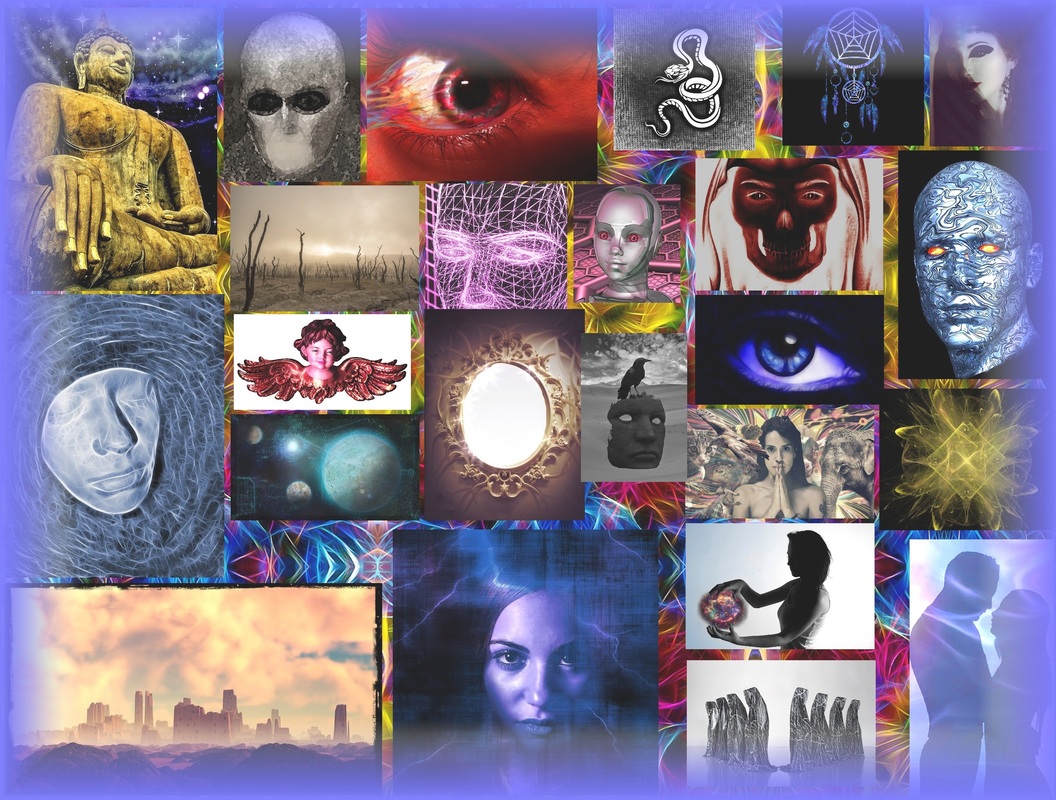
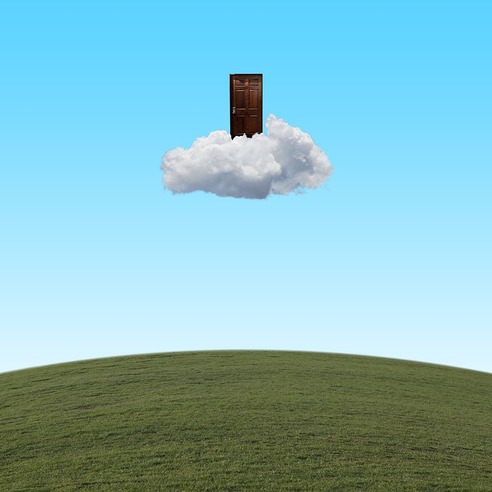
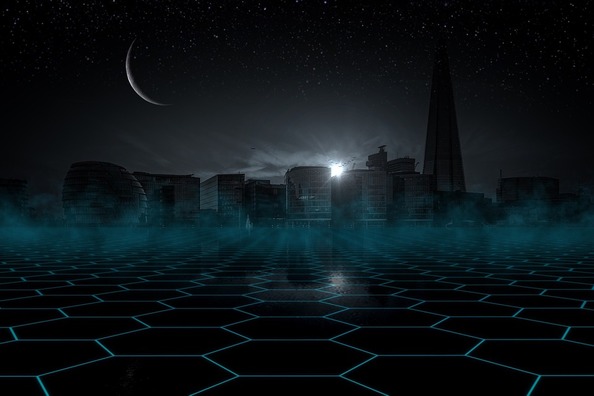
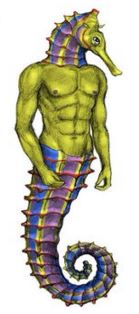
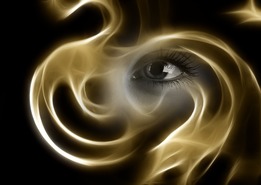
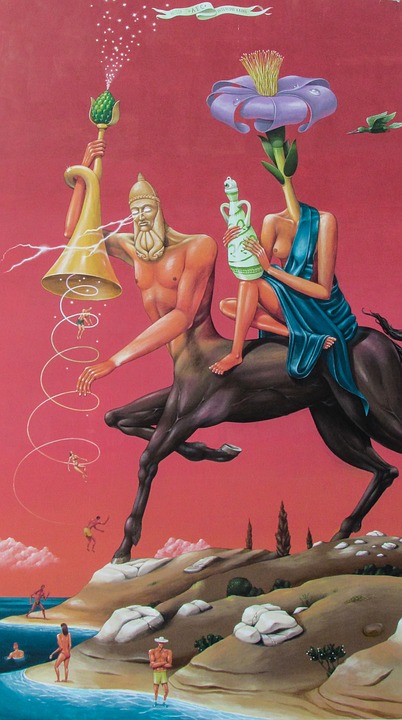

 RSS Feed
RSS Feed
